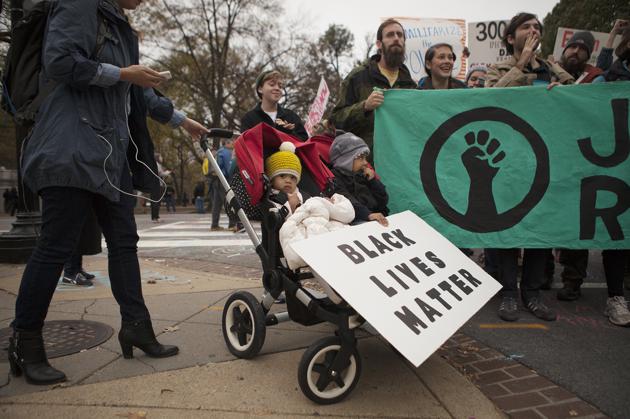Students March to White House to Call for Social Change
The group of frustrated young people came together from far and wide to demand politicians address injustice.

On a chilly Monday morning, a couple hundred young men and women marched to the White House. Into megaphones they yelled “No justice no peace, no racist police” and “No borders! No nations! Stop the deportations!” Among the protesters were a 19-year-old from Cheyenne tribal land in North Dakota who rode his first plane to be here, a local organizer born in South Korea, and a woman pushing a two-seated stroller—both of her kids holding a sign that read “Black lives matter.”
The crowd protested on a host of issues, including racial profiling, the criminal-justice system, climate change, and immigration. Though the topics varied, the majority of the protesters were young. The rally was called “Our Generation, Our Choice.” It was planned by several youth groups, including Million Hoodies Movement for Justice, the Fossil Fuel Divestment Student Network, and 350.org. All the issues have been recurring themes in the presidential debates of late. And while there seemed to be few GOP sympathizers in the crowd—but a lot of Bernie Sanders stickers—the marchers were upset with politicians in general.
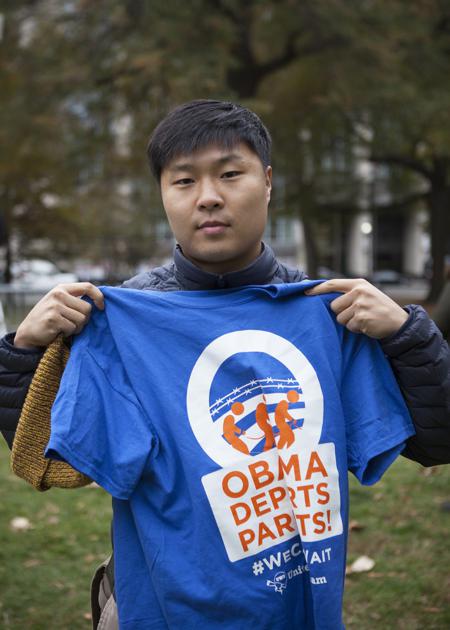
Protesters said neither side has worked hard enough to solve these issues, either because of political concessions or lack of will. “Politicians are not acting,” says David Chung, who lives in New York and works with United We Dream, an immigrants' rights organization.
The march lasted about two hours. The single most unifying theme seemed to be the angst felt by young people over climate change, the need for immigration reform, and a racially biased criminal-justice system, all as status quo issues that need addressing. Below are some of the people who rallied Monday morning.
Devontae Torriente, 18, attends American University and wants to study law. He organizes with the Million Hoodies Movement for Justice, a racial-justice group that formed after the shooting of Trayvon Martin. “Our lives are at stake with this issue,” Torriente says of racial profiling.
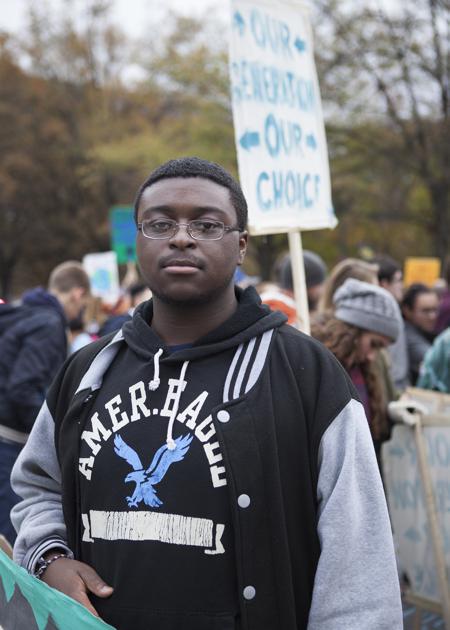
Madelynn Taylor, 21, is part of a group forming at Williams College that educates white students on how they can help in the racial-justice movement. “There's so much still to learn about what you do and how you affect other people."
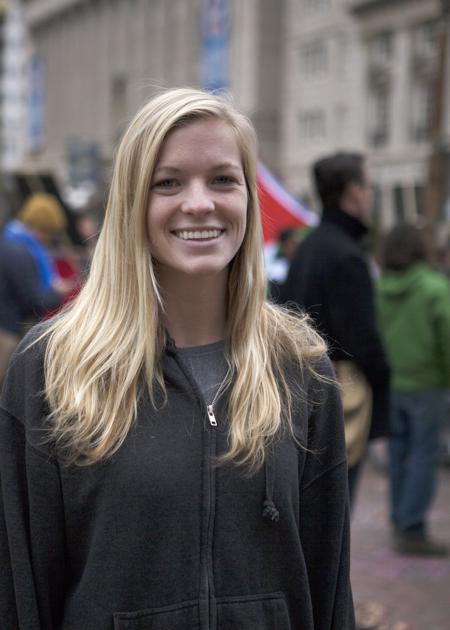
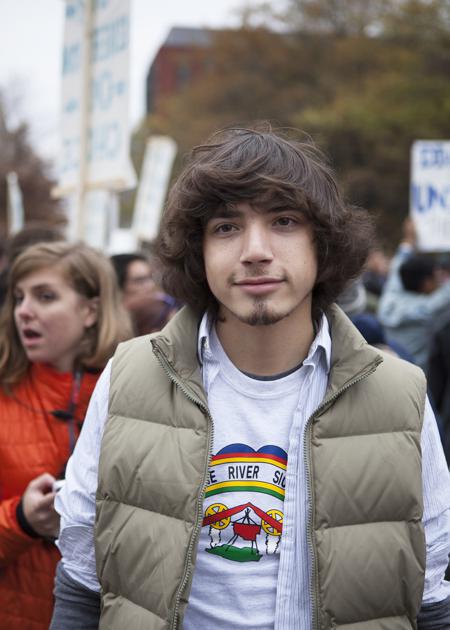
Trenton Casillas-Bakeberg, 19, and Jasilyn Charger, 19 (below), are both members of the Cheyenne River Sioux Tribe near Eagle Butte, South Dakota. Casillas-Bakeberg says he founded a group called the One Mind Youth Movement, which focuses on social threats to Native American youth, like alcoholism, poverty, and high rates of suicide. “We’re losing kids as young as 11 to killing themselves,” Casillas-Bakeberg says.
Jasilyn Charger came to D.C. from her home on the Cheyenne River reservation. "We're here to give a voice to our community. Just because you're on the reservation doesn't mean you don't have a voice."
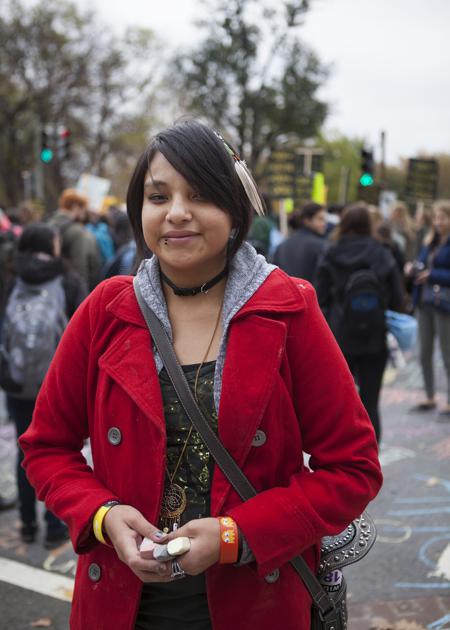

Guillermo Barreto-Corona, 18, grew up in Washington state. His mother and father migrated from Jalisco, Mexico, and he says he fears every day they drive to work that they might be stopped by law enforcement and deported. He is part of the Dreamer movement, and has been marching for immigration reform for more than a year. “Our leaders talk around the subject,” he says. “What we want now is aggressive change.”
Maybelline McCoy, of D.C. has taken her two toddlers, Malakai and Amayah McCoy, to many protests. "They are the future, and they need to be involved right now,” McCoy says. “It's crucial."
